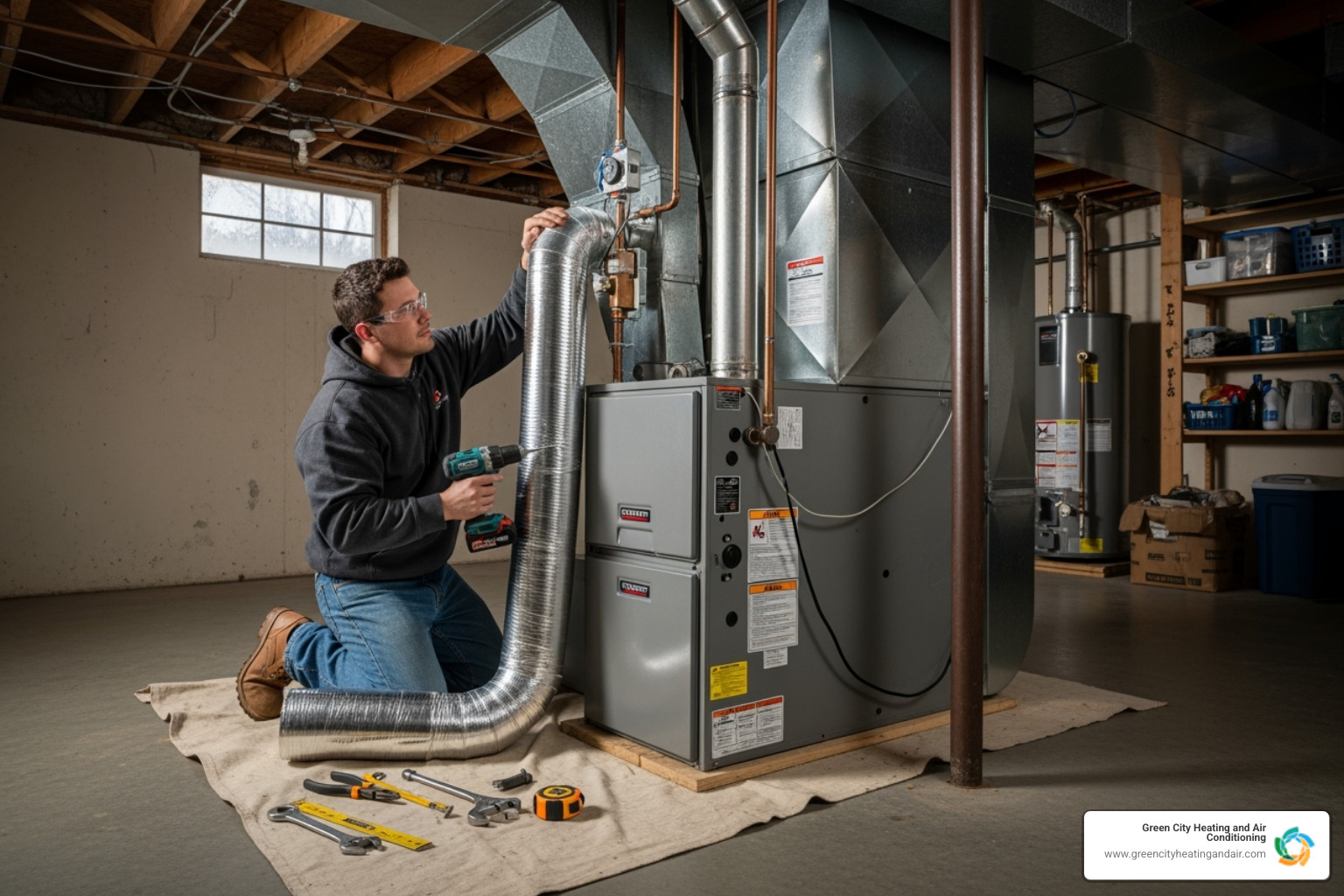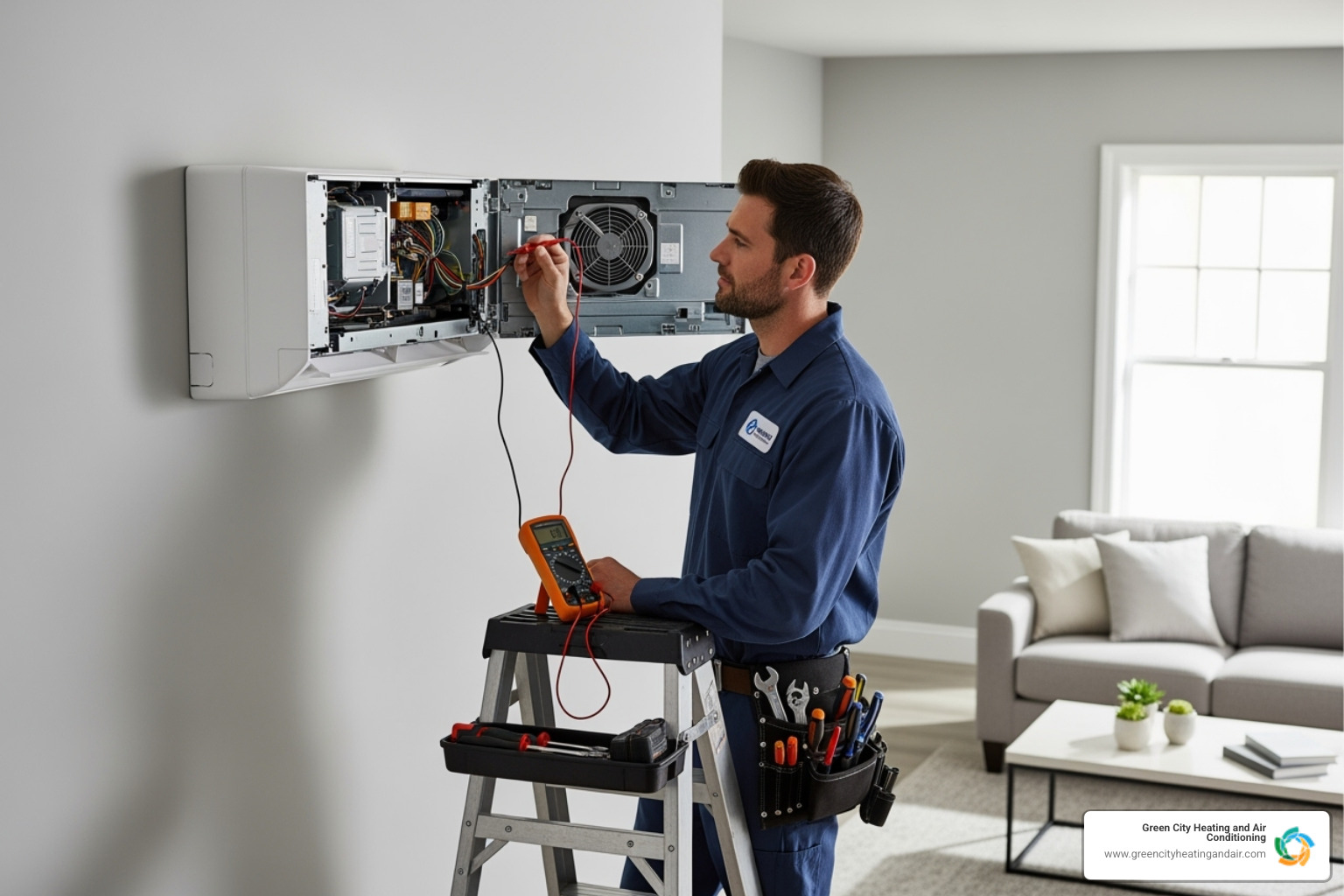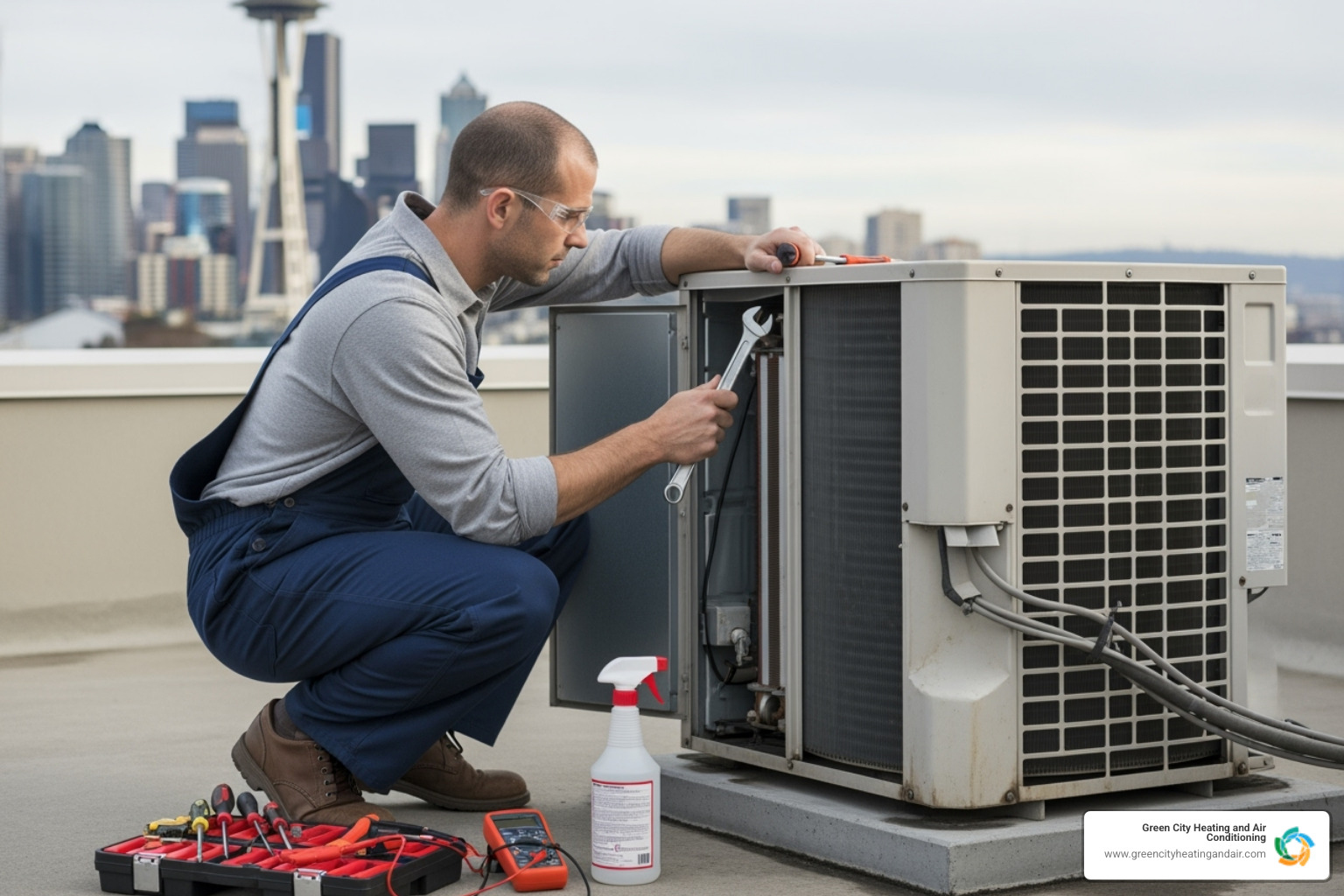A mini split air conditioner in Bellevue is known for being efficient and quiet. So when it suddenly starts making more noise than usual, it can be frustrating and distracting. Whether it sounds like a rattle, hum, or something louder, that noise usually points to something that needs attention. Summer temperatures bring increased usage, so strange sounds can turn into real problems quickly.
Ignoring loud or persistent noises can lead to bigger performance issues and even shorten the life of your unit. These systems are meant to deliver cool, consistent comfort without being heard. If they’re making noise, something isn’t functioning the way it should. Figuring out the cause and getting it resolved early helps preserve the long-term reliability of your cooling setup.
Common Causes Of Noise In Mini Split Air Conditioners
Unusual sounds coming from a mini split air conditioner in Bellevue are often signs of a mechanical or connection issue that should not be overlooked. Knowing the possible causes can help you spot when it’s time to bring in help before a small issue turns into system damage or an unexpected breakdown.
Here are some of the most common reasons for excessive noise in mini split systems:
- Loose Brackets or Parts: Over time, vibration from the unit’s daily operation can loosen screws, fasteners, and even internal components. Once those parts start to shift or rattle around, they create knocking or clanking noises that get more noticeable the longer they’re ignored.
- Fan or Blower Issues: If the fan blades or blower assembly is bent, dirty, or worn down, you will likely hear scraping, ticking, or uneven spinning sounds. These parts need to move freely. When something affects that motion, it throws the system off balance.
- Refrigerant Leaks: A hissing or bubbling sound may indicate a refrigerant leak. This is more than just a noise issue, as it impacts cooling performance and can compromise safety or indoor air quality.
- Debris in Outdoor or Indoor Units: Sticks, leaves, or even pests can make their way into the outdoor components. Inside, dust buildup and objects too close to the vents can make strange sounds when airflow is blocked or redirected.
- Poor Installation or Vibration: If the wall mount or bracket is not securely fastened, or if the unit was not installed against a stable structure, vibration can cause ongoing rumbling or rattling that gets worse with time.
For example, there have been cases where a homeowner in Bellevue noticed a rhythmic thumping each time the cooling cycle started. It turned out the outdoor unit wasn’t level, causing internal parts to shake every time the compressor kicked on. Once the base was stabilized, the noise disappeared completely.
These issues often need closer inspection to confirm, but unusual noise is rarely harmless. Identifying it early can prevent a series of unwanted problems that affect comfort, efficiency, and repair costs later.
Diagnosing The Source Of The Noise
Tracking down the exact source of a strange noise is not something you want to guess your way through. A mini split air conditioner in Bellevue has multiple components that could be affected, so narrowing it down can speed up the repair process and reduce unnecessary expenses.
Start by listening carefully to the timing and type of sound. Does it happen as soon as the unit starts? Is it constant throughout the cooling cycle? A repetitive clicking might suggest a relay issue. A grinding or screeching noise often points to a motor or fan problem.
Once you have identified when the noise happens, follow it up with a quick visual check. Look over the indoor and outdoor units. Check for loose panels, visible debris, or signs of something being out of place. Damaged fan blades or bent grilles are common signs of trouble that can usually be seen from the outside.
It is also helpful to review the manufacturer’s manual. Some noises could be related to auto-clean or error codes, and the built-in guidelines may give hints on what the problem is. But if things look or sound more serious, such as metal-on-metal scraping or hissing sounds, it is best to stop the system and move to the next step: bringing in our professionals.
Practical Solutions To Reduce System Noise
Once the source of the noise becomes clear, taking action quickly can stop it from getting worse. There are steps that help reduce the chances of repeat issues and bring back quiet cooling performance.
Here is what typically helps solve these noise-related problems:
1. Secure Loose Components: Tighten brackets, panels, and screws that have shifted during normal operation to stop rattling sounds.
2. Remove Obstructions: Clear out leaves or debris from the outdoor unit and check indoor vents for any airflow blockages.
3. Clean Indoor Filters and Fan Blades: Dust buildup can throw components off balance and result in humming or vibrating.
4. Review Unit Positioning and Support: If the outdoor unit or wall mount is not stable, reinforcing the base or adding sound-dampening pads can reduce vibration.
5. Preventive Inspections: Schedule regular maintenance with our technicians to keep components in check and replace parts before they wear out.
6. Professional Repair and Replacement: If key components like motors or fans are past their lifespan, our professionals will diagnose and install replacements to restore full performance.
For instance, one Bellevue home had a screeching sound each time the unit started up. The issue was a worn indoor blower motor bearing. After our technician replaced the affected part, the noise stopped and overall airflow improved. Timely diagnosis and professional care prevented further damage to nearby parts.
Know When To Involve Our Professionals
Not every problem can be spotted from the outside or handled without proper training. Persistent issues may point to deeper mechanical faults or electrical problems. When noise continues after removing visible obstructions or tightening loose hardware, it is best to let our team handle the repair safely and correctly.
Call our technicians if you observe any of the following:
- Noise that becomes louder or changes over time
- Sounds that return shortly after being reduced or fixed
- Leaking fluid along refrigerant lines or connections
- Weak cooling performance that accompanies the noise
- Burning odors or strange electrical smells
Our professionals are trained to find the root causes and apply targeted solutions that work over the long term. Instead of trial and error, we inspect, confirm, and perform necessary repairs. This approach prevents further issues and keeps your cooling system running during peak summer use.
Restoring Comfort And Peace In Your Bellevue Home
A mini split air conditioner in Bellevue is built for quiet comfort. It shouldn’t distract or disrupt your home with unusual sounds. If your system has grown louder than usual, there is likely a problem inside that needs attention. Quick fixes and routine upkeep can help avoid serious malfunctions and extend the life of your unit.
Staying ahead with preventive maintenance, seasonal check-ups, and expert service keeps noise under control. Your home deserves a climate system that operates efficiently and quietly. Restoring cooling performance starts by recognizing the signs early and letting our professionals provide the right fix at the right time. For continued comfort in your Bellevue home, be proactive and have your system evaluated when signs of trouble appear.
If your mini split air conditioner in Bellevue is producing unusual noise, it might be time for a thorough inspection to maintain safe, efficient, and quiet operation. Green City Heating and Air Conditioning provides dependable solutions to keep your system performing at its best. For a quick estimate or to book a service visit, please contact us today.
More Blogs
Latest
insights and tips

Warmth Unleashed: The Ultimate Seattle Furnace Installation Handbook

Emergency Ductless AC Repair in Bellevue: Get Your Cool Back Fast










